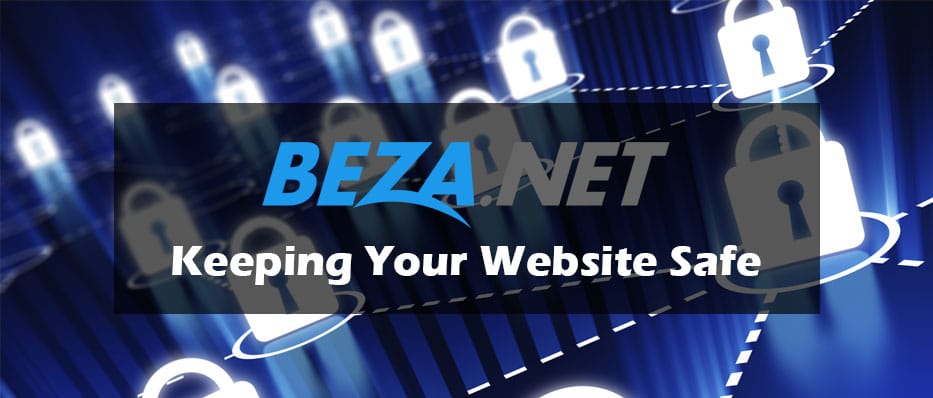Is your website safe from malware and scheming hackers? Security has been an issue since the emergence of computer technology. Unfortunately, many business and personal websites are compromised despite the implementation of security measures. The website owner must take all precautions to safeguard their sites from data infringement and other security hazards.
How do you achieve this goal?
- Choose a reliable and secure web hosting provider.
Hosting security is vital. Just imagine that after investing substantial resources in building your site, it goes down unexpectedly because of viruses that penetrate the system. Safe hosting protects not only your business valuable data from fraud but also from possible blacklisting by Google and others. - The hosting provider should also run a multi-layered security services to help keep your website free of compromise.
This means the usage of dedicated firewalls, Intrusion Prevention Systems (IPS), Anti-Virus for starters. All of these security services should be auto-updated every 5 minutes to protect against latest attacks and vulnerabilities. At the same time, you need 24/7 active monitoring of servers and back-ups which is standard with any of our hosting packages. - Your website should have a Secure Sockets Layer (SSL) certificate.
This technology ensures all communication between your web browser and web server are encrypted and secure. SSL guarantees protection for Internet transactions, safeguards transfer of data as well as login information, and secures payment details. SSL certificates must be installed on the server and server’s database. This is why we give away FREE SSL certificates for all hosting customers. - Connect through only secure networks. Avoid those with anonymous security settings. Make use of a safe website proxy if you are compelled to access your site from a public network like coffee shops or Internet cafes.
- Choose strong passwords. Hackers are very resourceful and deceptive. These con artists are capable of breaking into IT systems and breach accounts protected by passwords. To guard against this threat, use complicated passwords. This can be a combination of letter, symbols and numbers which are not related to your website, business or personal details.
- Backup all your files. You can use cloud as well as hybrid backup and storage solutions like Carbonite. BEZA.NET hosting customers have automatic 90 days of backups of their email, websites and database files.
- Update Your Website Applications. The vast majority of website hacks are through outdated web applications (like WordPress, Drupal, etc). The vast majority of applications have an option to activate auto-update. You should enable this which reduces your website vector of attack by hackers. Also consider only using addon’s and plugins which are actively maintained by their developer to address any security vulnerabilities.
- Prevent Structured Query Language (SQL) injection which attacks data-driven apps.
These attacks are initiated by hackers who exploit URL limitations and web form fields to gain access to databases of websites. Parameterized queries or “prepared statements” put together SQL statements so what should be supplied are only the parameters or variables inserted into said statements for proper execution. The straightforward technique is used in majority of web languages. - Regular scanning helps. Opt for free scanners such as Site Lock, SUCURI, and Scan My Server. These tools can detect malware and dubious codes. Scanning should be performed at least once each month for safety purposes.
There are many other tips which competent Cyber-Security specialists recommend to secure your website from breaches. No website can be 100% secure from compromise but we suggest you do as much as possible that you feel will be most cost-effective and applicable to your website to deter the vast majority of intrusion attempts to deface and compromise your online properties.



